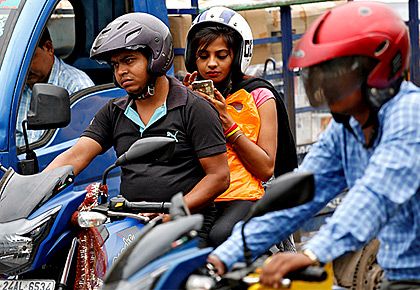Both US and Indian firms have risen to the challenge, recognising the huge market potential for companies with the capacity to think outside the box, says Nisha Biswal.
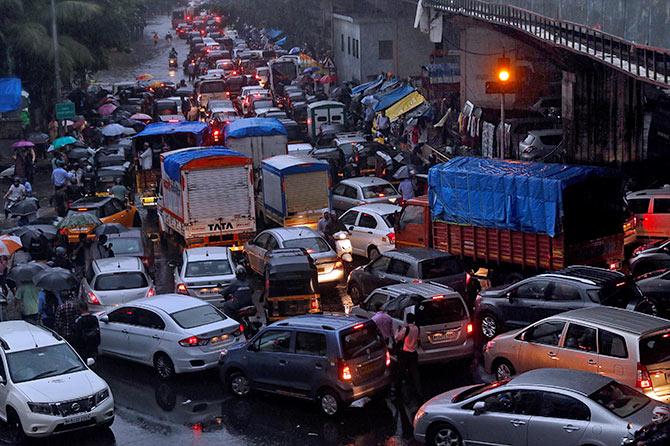
Anyone who has sat in deadlocked Mumbai traffic -- or congestion in any of the growing number of megacities across Asia -- can attest to the transportation challenges facing the region.
With more than a third of Indians now living in cities, and a whopping 20 million in the Mumbai metropolis, getting around can be a major obstacle.
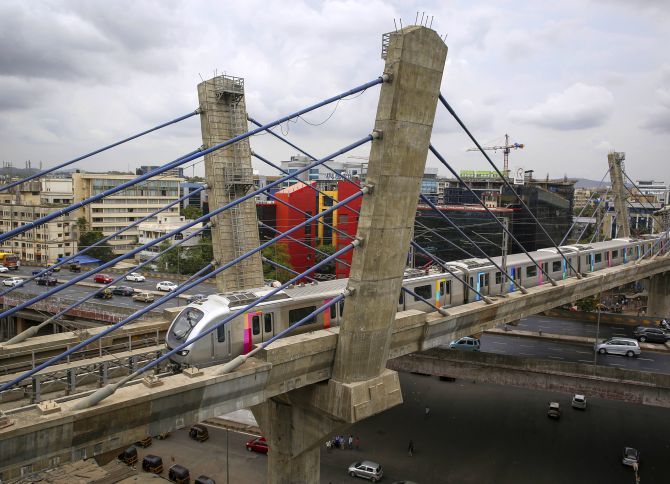
Recognising these challenges, the Narendra Modi government and officials across the country are focused on attracting new investments into the infrastructure needed to support a growing Indian economy.
But developing a 21st-century transportation system requires more than just building new roads, bridges and train tracks; it demands a reimaging of what transportation will look like in the decades to come.
Luckily for the millions of Indians who will depend on these innovations, India has long demonstrated the ability to rapidly adopt new technology at critical moments in its economic journey.
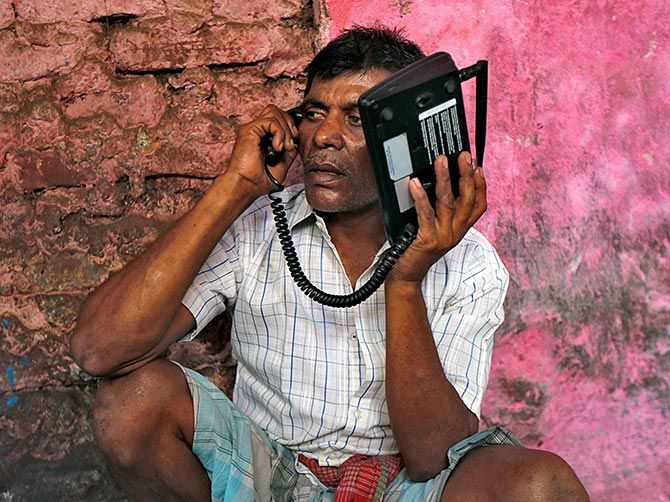
A decade ago, access to telephone coverage in India hovered around 35 per cent, and Indians could wait months or even years to get a landline established.
The telecom industry exploded with the advent of mobile technology, and India's concerted efforts to develop fibre optic networks and cellular infrastructure created an ecosystem that now supports over a billion mobile phones and connects Indians around the country and across the world.
We have seen that same story play out in India's development of biometric identity cards and bank accounts.
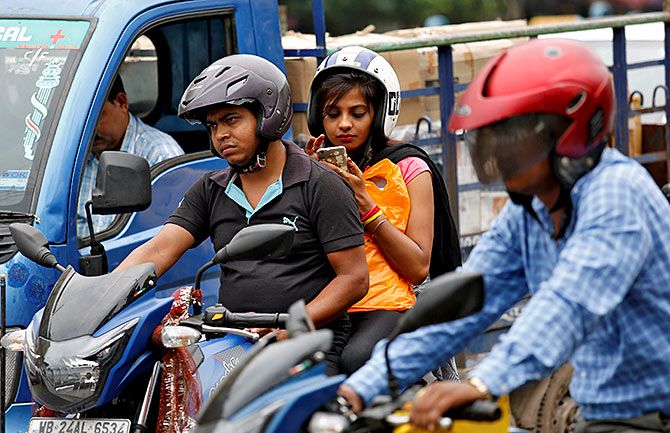
With its transportation system bursting at the seams, India is poised to make the same leap on transportation and mobility.
India is projected to be the world's fourth-largest passenger electric vehicle market by 2040, and greater electric vehicle adoption in India would support energy security and improved air quality.
The government is taking steps to create an ecosystem for EVs through policies like FAME II (Faster Adoption and Manufacturing of Electric Vehicles in India), reductions in the GST rate for electric vehicle components, and building the charging infrastructure.
Recognising the need to facilitate private sector partnerships, NITI Aayog launched the first annual MOVE global summit in 2018 to promote discussion on the mobility ecosystem and transportation markets.
Both US and Indian firms have risen to the challenge, recognising the huge market potential for companies with the capacity to think outside the box.
Last year, the Tata group won the central government's bid to produce a fleet of 10,000 electric cars, and the company announced plans to roll out electric vehicles for the Indian market by 2020.
Mahindra too has been making waves in the electric vehicle market, selling 10,000 electric vehicles last year and establishing a partnership with Ford to expand its offerings.
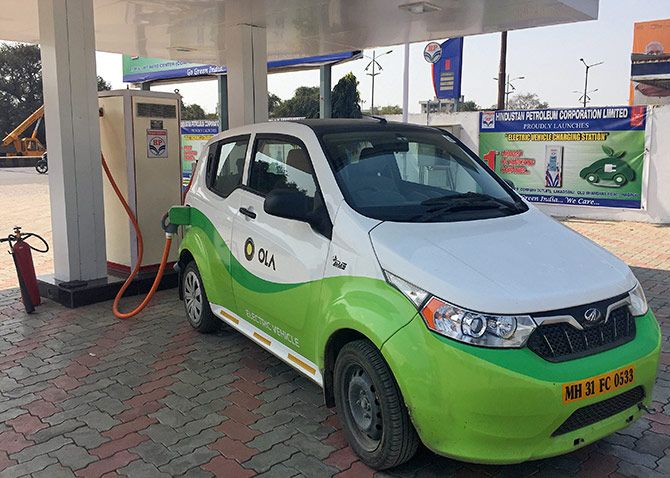
While electric vehicles are already market-viable, a new generation of companies are focused on moving off roads altogether.
At the 2018 India Ideas Summit in Mumbai, Uber Elevate pitched flying cars as an answer to India's congested roads.
Executives at the company's annual aerial ridesharing conference also highlighted India as one of their next key markets.
Amid this flurry of interest in mobility, it's worth highlighting one of the most ambitious projects in the works: The recently approved Virgin Hyperloop One-DP World plan to build the world's first Hyperloop system in Maharashtra.
It's no surprise that the government of Maharashtra was the first mover on a transportation project of this scale.
In recent years, the state has been at the forefront of conversations on building a new and high-tech India, with Mumbai leading the way as one of Asia's premier tech hubs.
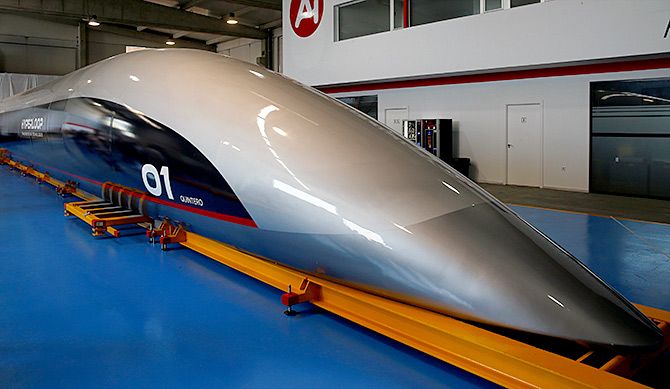
The project also offers clear benefits for Maharashtra, connecting two of its fastest-growing cities, Mumbai and Pune.
By 2026, 130 million passengers are expected to travel between Pune and Mumbai on already overcrowded infrastructure.
Once completed, the Hyperloop could serve nearly 200 million passengers each year, while cutting transportation time to under 30 minutes.
As India seeks to create the thousands of new jobs required to support a rapidly expanding working-age population, the project would also bring more than a million jobs over its lifetime -- if the government can kick off the procurement process for the technology and procure the land needed to build the 117.5-km corridor.
The success of the project will also depend on attracting billions of dollars of additional foreign direct investment to support later stages of construction.
India is in the lead to inaugurate the world's first hyperloop system, and holds the golden ticket of an initial $500 million of investment this year and the potential for billions more.
As global competition for hyperloop systems picks up, the government must ensure that bureaucratic red tape does not hold up a project that could launch a much-needed transportation revolution.
That's why the US-India Business Council is working with Maharashtra and officials across India to support development of the innovative transportation networks and technology that will relieve India's endemic congestion and pollution and support the country's vibrant economic growth.
That not just good news for India -- it's good news for the world.
Nisha Biswal is president, US-India Business Council, & and senior vice president, South Asia, US Chamber of Commerce.
